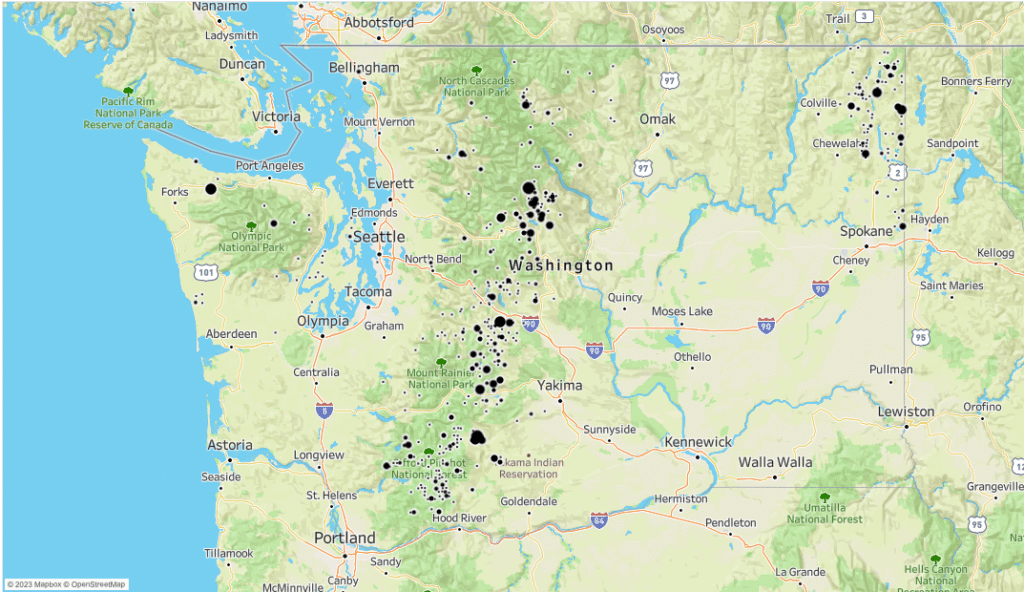Western White Pine Pinus monticola
The Western White Pine grow among fir and hemlock dense forests, although they aren’t a great competitor for the sunlight that it requires to grow. This species does however benefit from fires that wipe out the more heat sensitive trees such as the Hemlock. This gives it a chance to regenerate from surviving cones, and often out grow other tree species during the regrowth period (Arno & Hammerly. Northwest Trees).
Monticola, of the scientific name, means “mountain dweller,” because it is found in moist, mountainous areas of Washington and Oregon, and into Idaho- where the largest remainging white pine currently exist.
Distribution of Western White Pines in Washington State
Western White Pine are found primarily in the eastern Cascades, east Rainier, the Gifford Pinchot, and Colville National Forest. They seem to thrive in a variety of habitats that have a wide range of temperatures and annual precipitation.

